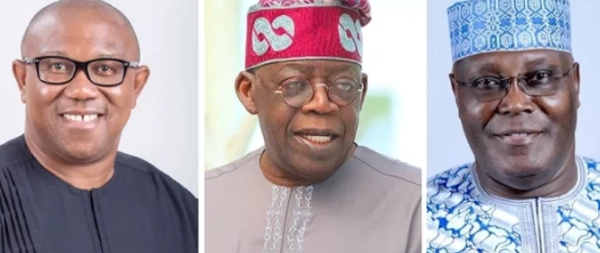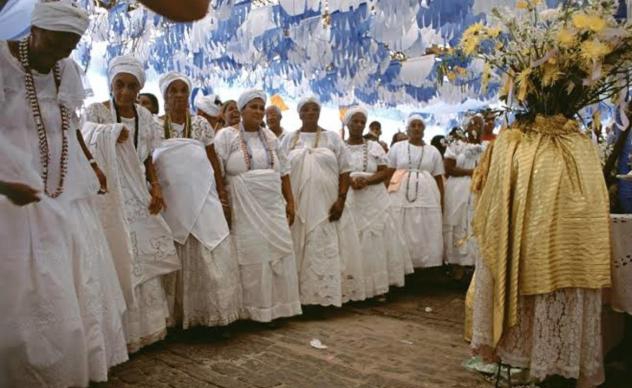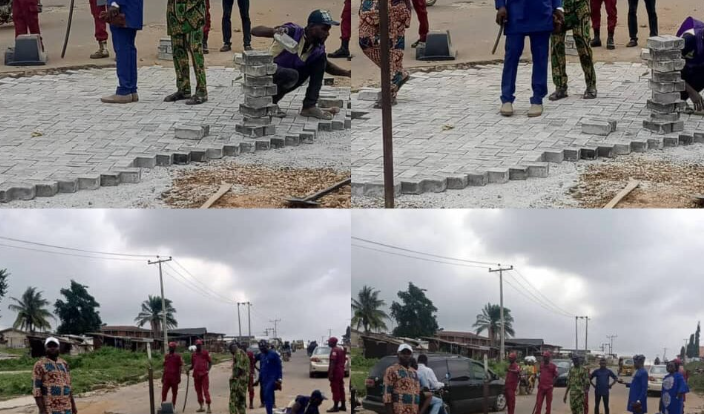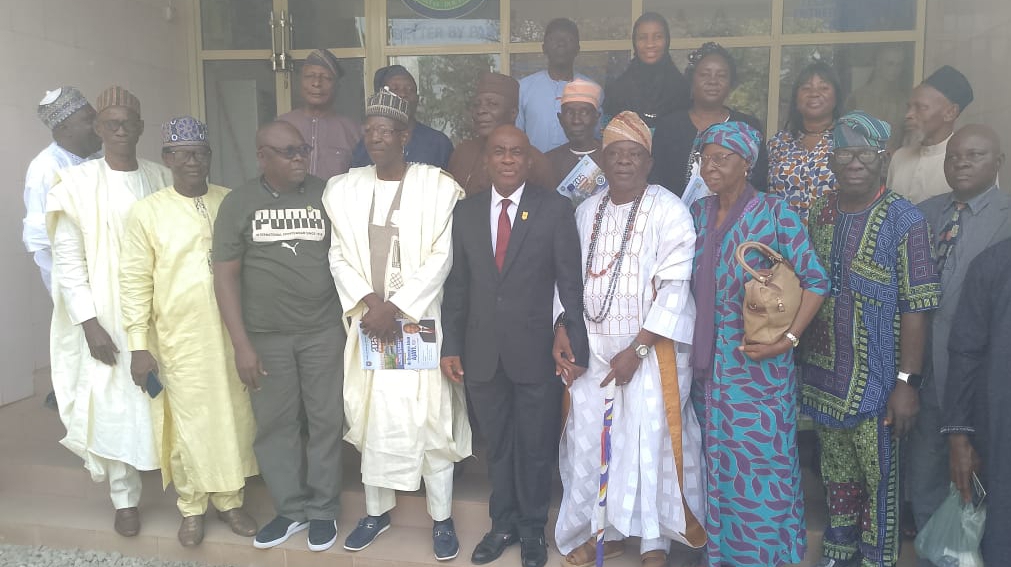Image caption: Obi, Tinubu, Atiku
OPINION: Why it’s difficult to remove Nigerian President, UK based legal expert on PEPT verdict up
Obiajunwa AMA
Now that the Learned Justices of the Court of Appeal, have delivered their judgement on the cases that emanated from the 2023 presidential elections, it is always right to provide some thoughts as legal minds. I will attempt to comment on few of the issues in a short and clear way, while we await written copies of the full judgement from the court.
Prior to providing this brief insight, it is important to inform that citizens should not be in a hurry to cast aspersions on the judiciary, especially when they are not well-acquainted with the law. No matter how desolate you may feel about any judgement, it is important to appreciate the tedious nature of justice dispensation. Thus, and despite any perceived limitations, we must always appreciate our judges and lawyers, for helping to assure the thriving of individuals and society.
Now to the themes of this brief commentary:
1. Whether a presidential candidate is required to score 25% of votes in FCT to be declared winner of an election?
The response to this one is a resounding NO, and therefore, the PEPT were correct in their decision. An individual does not even need to be a lawyer to know that, Nigerians that are residents in FCT are not superior to Nigerians that live in other parts of the country. Any argument that a presidential candidate must score 25% of votes in FCT to be declared winner of elections, does automatically confers special status of citizenship on Nigerians that live there.
The concept of equality of citizenship is a fundamental ingredient of statehood. It is the concept upon which all other citizenship rights and obligations, such as payment of taxes, are predicated. In fact, it is also the same principle that applies to equality of states, and that is why each state of the federation has three senators, no matter its seize and population. This concept of equality of citizens, is also the reason why the number of members that are elected to the House of Representatives, is determined through proportionality to the population of all citizens, no matter their personal idiosyncrasy.
Finally on this score, anyone with a passing knowledge of Corporate law, will know that this same principle exists as equality of shareholders at first instance, and it is the premise upon which all other proprietary rights are predicated.
2. Alleged criminal conviction in the United States
Once more, the PEPT were right on this one. As a starting point, and for some of us that live in the West, it is almost inconceivable that an individual will be convicted of an offence, especially one that touches on a breach of the criminal code, without a record of it. If President Tinubu was convicted of a criminal offence in the United States in the 20th and 21st Century or even further back, there will be a trace and record of same in the United States.
If the point above is not persuasive enough, then it is important to state that foreign judgments are not automatically recognised nor enforced in other jurisdictions. The concept of sovereignty of states (countries), is such that there are procedures prescribed by domestic laws on the recognition of foreign judgments. In fact, some countries do not even recognise nor enforce foreign laws in their jurisdictions. Thus, it is important for individuals to be knowledgeable on the recognition of foreign laws in Nigeria, and its probative value to cases in dispute.
In law, we teach that constitutions and primary legislations (such as the Nigerian Electoral Act) must always be starting points for lawyers before case laws, and when every other thing fails, revert to the same constitution and primary legislation. Although the contention between parliament (National Assembly) and the Courts will always remain, however, the concept of parliamentary sovereignty is such that, the judiciary will always defer to statutes and give meaning to the ordinary intention of legislators, and using the four rules of statutory interpretation, in so far as it does not lead to absurdity. A cursory review of Nigeria’s constitution is clear on qualifications and disqualifications of a presidential candidate based on criminal conviction. Even on that subject, the same constitution provides a limitation period in which a candidate can be debarred from contesting an election because of a criminal conviction.
Advertisement
Therefore, a combined examination of these provisions in Nigerian law, will reveal that, assuming without conceding that there was a criminal conviction, the embargo period has even elapsed, and thus, President Tinubu cannot be excluded from participating in the election because of any criminal matter. Punishments for civil and criminal cases are very different, and this also applies to procedures of adjudicating them. Anyone with a passing knowledge of law, ought to acknowledge that the United States matter is purely a civil case, in so far as there is no proven criminal legal procedures that underpinned the forfeiture of property. You may argue on the morality question of the matter, but morality exists in equity and not in law, and equity will only prevail if it is in conflict with the law.
3. Transmission of Results via IREV and BVAS issue
On this subject, the PEPT is also correct. Although so much commentary has attended the deployment of technology in the 2023 elections, however, I have always been of the view that, the significance of the IREV and BVAS in assuring better conduct of election is minimal. This role is simply premised on transparency and proving issues, such as over-voting, or non-compliance with the law.
Its role, as erroneously believed by some constituencies, is not for these technological infusions into the electoral process, to be solely used to prove that a candidate won or lost an election. Its deployment and the INEC’s elections guidelines, are simply ancillary and subordinate to the provisions of the Electoral Act, in recognition of the Heavenly position of citizens as the only sovereigns in a country, that can transfer legitimacy to legislators through elections to make decisions on their behalf.
Thus, a critical review, in fact a passing review may even suffice, of the current Nigerian Electoral Act (as amended), will clearly show the methods and procedures for collating and returning winners in an election. It does not contemplate the use of IREV and BVAS for such endeavour.
If you are desolate and wondering the significance of the BVAS and IREV in the elections, and considering the enormous public resources that was expended on them, then you may have a point. But, blame the legislators for this omission and not Bola Tinubu. Lawmakers and politicians in developing jurisdictions such as Nigeria, always leave room for error in their legislative business, and you may argue that they do this on purpose.
In amending the current Electoral Act to accommodate the use of BVAS and IREV, they could have easily included a one liner on electronic transmission of results and the judicial recognition of same. Having not done that therefore, since individuals are entitled to benefit from any error in law, and the courts are simply to give effect to the intentions of parliament, President Tinubu and the judiciary cannot be blamed for the indiscretion or omission of elected legislators.
4. Non-compliance with the law and electoral guidelines
This subject is the ‘elephant in the room’, and you may argue will remain contentious. Overall, however, I believe the PEPT were right too. It will remain contentious because of the provisions of the Nigerian Constitution, statutes and the common law, on proof in law – especially in elections petitions which are unique types of legal adjudication, rules of evidence and the incidence of civil and criminal procedural rules in dispute litigation.
To save you from these legal nuances in the paragraph above, I can simply inform that it is highly improbable to prove issues of non-compliance in a presidential election in Nigeria. This difficulty is mainly due to the size of the country, and the requirement for a proof of ‘substantial’ non-compliance with the law in an election petition. Therefore, unless a candidate can prove that illegalities and infractions did ‘substantially’ affected the integrity of the election, no court will overturn a presidential election in Nigeria. To be successful, such infractions must be proven to the required legal standard in several parts of the country. Thus, with thirty-six states and the FCT, thousands of polling units and millions of voters, it is almost inconceivable to prove non-compliance with the law in an election petition case.
At this juncture, you may wonder why the requirement for ‘substantial’ non-compliance with the law. It is simply because of the recognition of fallibility of human beings by the law. Human beings can never be perfect, and in the daily conduct of human affairs, there will always be limitations. Therefore, since ‘whoever that seeks equity must do equity’, it is such that common human errors, ‘de minimis’ unlawful conducts and human limitations, should not lead to the evisceration of an act as a whole; if in the estimation of the law, such failures would not have significantly altered or impacted the integrity of that human activity or conduct. To do otherwise would be inequitable. Thus, the Learned Justices of the Court of Appeal were right, that if the law has not been substantially affected, then justice should be delivered because ‘equity follows the law’
‘Non-compliance with the law’ simply rests on evidence, and whoever alleges must prove in law. To prove something in law is a highly technical endeavour, and only the very best of lawyers will be successful. That is why when you ask why some lawyers have never won a case or never goes to court, it is not for lack of trying but due to the difficulty in proving a case. To prove civil or criminal subjects is a difficult task, and it is even herculean when there is a convergence of civil and criminal issues in a case. Thence lies the problem of proving non-compliance in an election petition, as such allegation possess both civil and criminal limbs of law.
To add to this difficult task in proving non-compliance, the rules of evidence is such that relevance and weight or probative value, that should be attached to pieces of evidence are considered. Similarly, the holy grail rule against hearsay and corroboration must also be considered. Taking into account the rowdy atmosphere that pervades in Nigeria during elections and the difficulty in accessing evidence by lawyers, it is such that most witnesses in election petitions will be hearsay, and therefore, inadmissible in court. In essence, what most people think or call in the streets as evidence are actually not lawful and admissible evidence in court.
5. Concluding remarks
In summary, I believe that justice has been done in the matter of the presidential elections petitions. Although it may not have gone the way that some constituencies envisaged, however, and considering my brief explanations above, you can deduce that neither the court nor President Tinubu can be blamed. It is how the Nigerian parliament has made the law and so, the courts can only give effect to it. President Bola Tinubu was not a lawmaker when these different laws were made. If anything, Nigerians should be better stewards on the activities of their representatives in parliament, to ensure that effective laws are enacted.
Yes, lawyers of all parties, especially the losing parties, can always do better. However, human beings can never be over careful and perfect. There will always be winners and losers in courts, hence, Alternative Dispute Resolution (ADR) mechanisms are better ways of settling disputes than litigation. Litigation and the law approaches disputes from the prism of ‘Right and Wrong’ in a harsher way, while ADR is ameliorative and therapeutic.
More importantly perhaps, losing parties still can approach the Supreme Court for a review of the judgement. They may disagree with it and my assertions here, but do note that, unless there are glaring errors in law, fact or procedures, appellate courts will determine cases based on activities from trial courts. Whichever way this decision goes from here, it is inexplicable that the Nigerian legal jurisprudence have been/will be clarified and enriched. This also presents an opportunity for Nigerians to impress it on parliament to amend the law on election petitions, so that the difficulties that I identified above will be eliminated.
Citizens that voted differently should not be desolate as we are one and the same people. All citizens must always remain steadfast, have belief in democracy, and keep trying for a better Nigeria. Bola Tinubu has been a governor in the largest and most populous state in Nigeria. Whether you like him or not, you can always truthfully assert that he tried his best among the committee of governors during his time. Therefore, he needs the support of all Nigerians as the lawful president of the Federal Republic of Nigeria. It is also the prerogative of individual citizens not to support his presidency, but in doing that, remain law abiding and not against the law. In any case, and subject to the decision of the Supreme Court for any appeal, you can always try for your preferred candidate in another four years.n
Ama, LLB (Beds), LLM (Beds), PhD (Canter), is Senior Lecturer in Law, University of Derby, England, United Kingdom, whose Research Areas include International Economic Law, Public International Law and Constitutional Law




